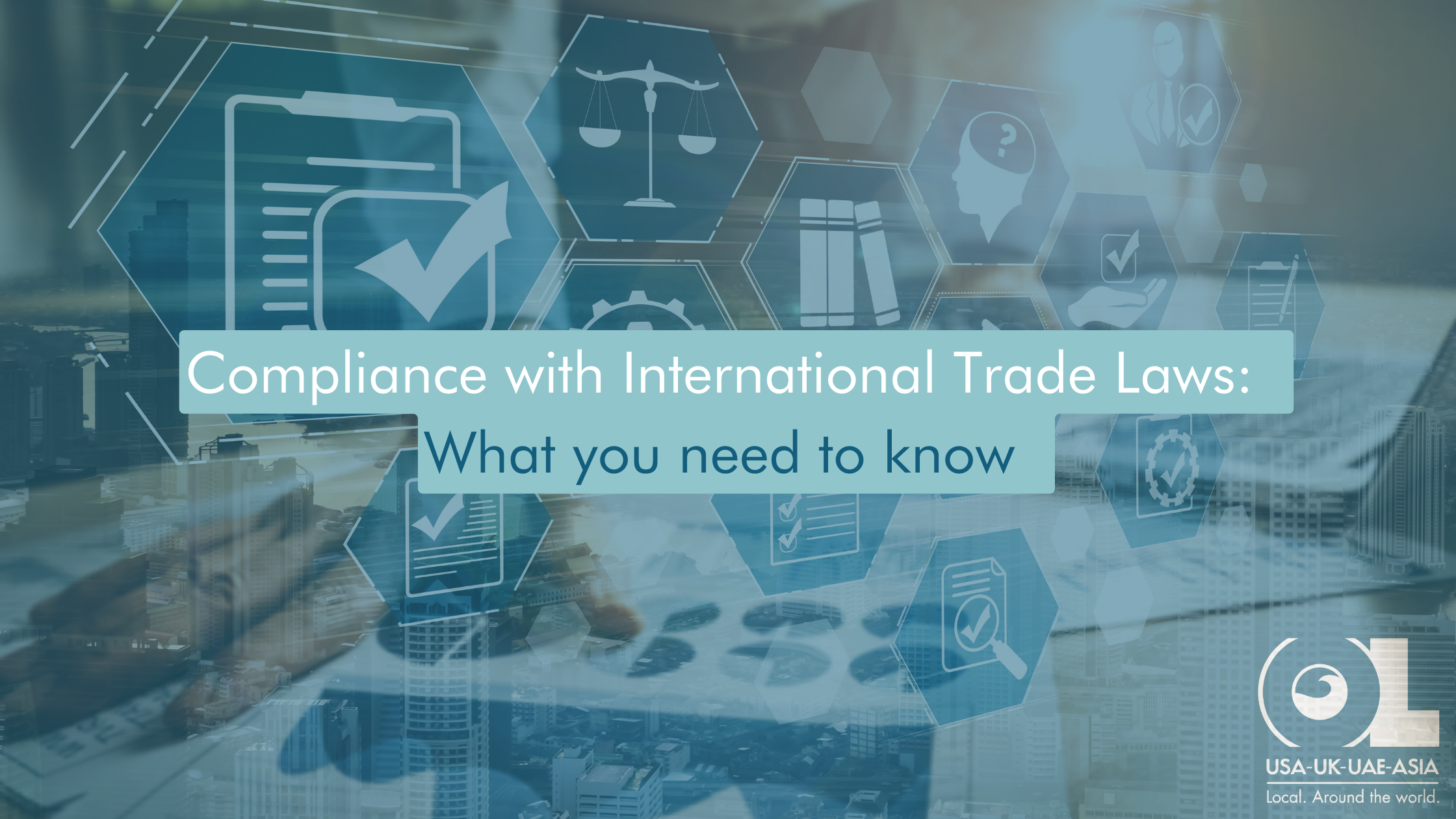Navigating the world of global trade is no small feat. The landscape is dotted with complex regulations and legal requirements that vary from country to country. Compliance with these international trade laws is not just a bureaucratic necessity; it’s a critical component of successful global operations. Ensuring compliance involves understanding and adhering to import and export laws, tariffs, duties, and customs regulations. Failing to comply can lead to severe consequences, including hefty fines, shipment delays, and legal complications.
This is where a Third-Party Logistics (3PL) provider becomes an invaluable partner. A 3PL’s expertise in logistics and trade regulations helps businesses seamlessly manage their supply chains across borders. By leveraging the specialized knowledge and resources of a 3PL, companies can navigate the intricate web of global trade laws more efficiently and effectively.
The benefits of maintaining compliance with global trade regulations are significant. First and foremost, it helps businesses avoid fines and penalties that can arise from non-compliance. These financial repercussions can be substantial and disruptive. Additionally, compliance ensures smooth operations by preventing delays that often occur when shipments are held up due to regulatory issues. Lastly, adhering to trade regulations helps maintain a company’s reputation. In the global marketplace, a reputation for reliability and legal compliance is a powerful asset, fostering trust and confidence among customers, partners, and regulators alike.
Understanding Global Trade Regulations
Global trade regulations are the rules and laws that govern how goods are traded across international borders. These regulations ensure that trade is conducted fairly, safely, and in accordance with international standards. Understanding and adhering to these regulations is essential for any business involved in importing or exporting goods.
Import/Export Laws Import and export laws are the foundation of global trade regulations. These laws dictate what goods can be brought into or sent out of a country, under what conditions, and what documentation is required. For instance, certain goods may require special permits, licenses, or certificates of origin. Compliance with these laws ensures that goods are legally allowed to cross borders and that all necessary paperwork is in order.
Tariffs and Duties Tariffs and duties are taxes imposed by governments on imported or exported goods. They are used to control the flow of goods, protect domestic industries, and generate revenue. Understanding the applicable tariffs and duties is crucial, as these costs can significantly affect the price of goods and, consequently, a company’s bottom line. Properly managing these taxes helps businesses avoid unexpected expenses and maintain competitive pricing.
Customs Regulations Customs regulations encompass a wide range of rules that govern the entry and exit of goods at a country’s borders. These regulations include the inspection of goods, valuation of items, classification of goods under the Harmonized System (HS) codes, and adherence to health and safety standards. Compliance with customs regulations ensures that goods move smoothly through customs checkpoints, avoiding delays and additional inspections.
Potential Consequences of Non-Compliance
Non-compliance with global trade regulations can lead to severe consequences for businesses:
- Fines and Penalties Failure to comply with import/export laws, tariffs, duties, and customs regulations can result in substantial fines and penalties. These financial penalties can be significant, impacting a company’s profitability and financial stability.
- Shipment Delays Non-compliance often leads to shipment delays. Goods may be held at customs for further inspection, missing critical delivery deadlines. These delays can disrupt supply chains, leading to stock shortages and dissatisfied customers.
- Legal Issues Non-compliance can also result in legal complications. Businesses may face lawsuits, sanctions, or bans from trading in certain markets. Legal issues can damage a company’s reputation, making it harder to establish trust with customers and partners.
By understanding and adhering to global trade regulations, businesses can avoid these potential pitfalls. Compliance ensures that trade operations run smoothly, costs are managed effectively, and legal risks are minimized. This, in turn, supports the overall success and sustainability of a business in the global marketplace.
The Role of a 3PL in Trade Compliance
Navigating the maze of global trade regulations can be daunting, but partnering with a Third-Party Logistics (3PL) provider can significantly ease this burden. Here’s how a 3PL can help ensure your business remains compliant:
Expertise and Knowledge 3PL providers bring a wealth of expertise and knowledge to the table. They specialize in logistics and are well-versed in the complexities of international trade regulations. This includes understanding import/export laws, tariffs, duties, and customs regulations across various countries. By leveraging their specialized knowledge, businesses can navigate the regulatory landscape more efficiently.
Staying Up-to-Date with Changing Regulations Global trade regulations are constantly evolving. Keeping up with these changes can be challenging for businesses focused on their core activities. 3PLs dedicate resources to monitor regulatory updates and ensure compliance with the latest requirements. This proactive approach helps businesses avoid compliance issues related to outdated practices.
Risk Management Effective risk management is crucial in international trade. 3PLs help identify potential compliance risks before they become significant issues. They conduct thorough risk assessments, considering factors such as geopolitical changes, regulatory updates, and market conditions. By identifying and mitigating these risks, 3PLs protect businesses from potential fines, delays, and legal troubles.
Documentation and Record-Keeping Accurate documentation is essential for compliance. 3PLs ensure that all necessary documents—such as invoices, certificates of origin, and shipping manifests—are correctly prepared and readily available. They also maintain meticulous records to provide a clear audit trail, which is invaluable in the event of a compliance audit or investigation.
Best Practices for Ensuring Trade Compliance
To stay compliant with global trade regulations, businesses should adopt the following best practices:
Conduct Regular Audits and Assessments Regular audits and assessments are vital for identifying and addressing compliance gaps. These audits should evaluate all aspects of the trade process, from documentation to operational practices. By routinely reviewing and updating compliance measures, businesses can ensure they meet current regulatory standards.
Invest in Training for Staff on Compliance Matters Knowledgeable staff are a key asset in maintaining compliance. Invest in ongoing training programs to keep employees informed about the latest regulations and best practices. This training should be comprehensive and tailored to the specific roles and responsibilities within the organization.
Utilize Technology and Software Solutions for Compliance Management Technology can significantly enhance compliance efforts. Invest in software solutions designed to manage trade compliance, such as automated classification tools, documentation management systems, and real-time tracking platforms. These tools streamline compliance processes, reduce human error, and provide valuable insights for decision-making.
Maintain Open Communication with All Stakeholders Effective communication is essential for compliance. Maintain open lines of communication with all stakeholders, including suppliers, customers, and regulatory authorities. Ensure that everyone involved in the supply chain understands and adheres to compliance requirements. Transparent communication helps preempt potential issues and facilitates swift resolution when problems arise.
By implementing these best practices and leveraging the expertise of a 3PL, businesses can navigate the complex landscape of global trade regulations with confidence. This strategic approach not only ensures compliance but also enhances operational efficiency, reduces risks, and supports sustainable growth in the global market.



